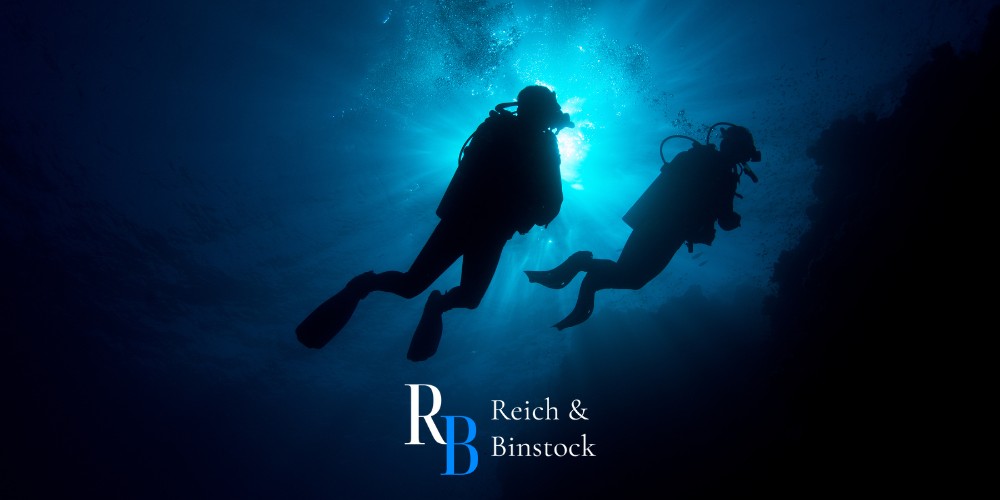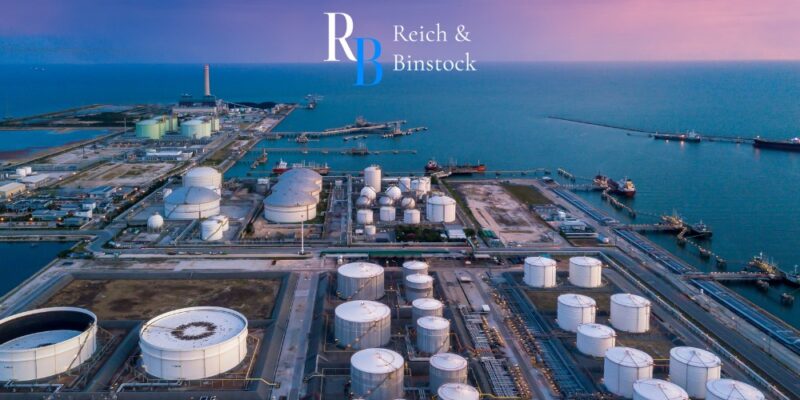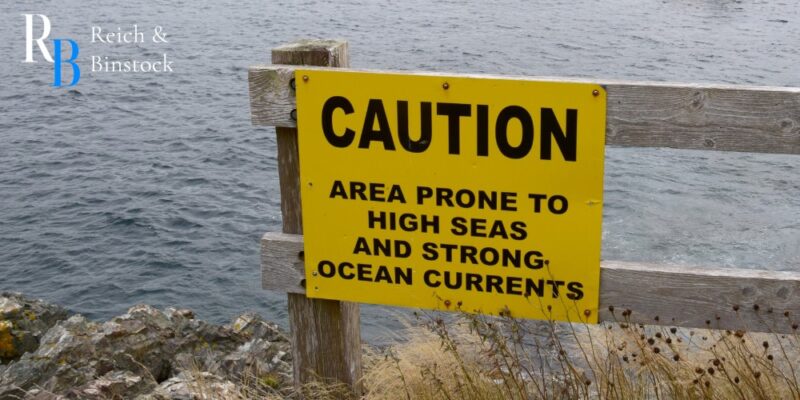UNDERWATER WELDING ACCIDENTS LAWYER IN HOUSTON
PRACTICE AREAS
What Is Underwater Welding?

Also known as hyperbaric welding, underwater welding involves, as the name suggests, welding underwater at high pressures. There are two common types of underwater welding, including wet welding and dry welding.
Wet welding takes place in the water, which means the underwater welders are exposed to the changing conditions of the ocean as they work. Generally, wet welding is the more difficult of the two types of underwater welding jobs. Divers must use a special rod-shaped welder that is different from those used on land.
With less precision and control, an underwater welder must have immense skill to avoid costly mistakes. Additionally, the ocean often has poor visibility at the depths these maritime workers dive to. Add in constantly shifting ocean currents, and you have a dangerous situation.
Although wet welding is faster than dry welding, it is also more dangerous and only a short-term solution. So, how is dry welding (hyperbaric welding) different from wet welding?
What Is Hyperbaric Welding?
Hyperbaric welding is the term more commonly used interchangeably with “dry welding.” Dry welding is widely considered by underwater welders to be safer than wet welding. Therefore, most underwater welders prefer this type of welding.
Before the actual dry welding can begin, a chamber must be constructed around the area that needs welding. Once the chamber has fully sealed, it will fill with oxygen and helium to dry everything out. Most of these chambers have room enough for up to three divers at once.
In a dry environment, underwater welders have much more control over their work, significantly increasing the chances of a successful weld. Other important advantages include a higher level of safety for the divers, as well as the option to test their welds. Hyperbaric welding is considered the long-term fix, conversely to wet welding.
How Does Underwater Welding Work?
Welding involves using a powerful electrical arc to superheat two pieces of metal, causing them to melt and fuse together while hot. Once the weld cools, the two pieces have joined together to form one piece. Welds are incredibly strong bonds, sometimes exceeding the strength of the original pieces.
Underwater welding differs from welding on land in many ways. Hyperbaric welding, as we mentioned before, involves a sealed chamber fixed around the work area. The chamber fills with a mixture of helium and oxygen gas which pushes the water out, dries the work area, and pressurizes the chamber.
It is very important that the chamber be pressurized just right, otherwise, the underwater welders may suffer from decompression sickness. If a hyperbaric chamber is not available for the job, welders may resort to wet welding. But if wet welding involves strong arcs of electricity, how are divers not electrocuted?
Wet welding heavily relies on a thick layer of hydrogen and oxygen gas bubbles surrounding the electrical arc. These bubbles shield the area around the weld, preventing the electricity from conducting through the water and causing harm to the diver.
However, these bubbles also make it more difficult to see the welding area. The bubbles may even disturb the surrounding area enough that the joint cools too quickly. Much like glass and other materials, welded metals are more prone to cracking when they cool too quickly.
How Dangerous Is Underwater Welding?
Underwater welding is considered one of the most dangerous maritime jobs with a fatality rate as high as 15%. To put this into perspective, fishing work, which is also considered dangerous, has a fatality rate lower than 0.02%. This makes underwater welding one of the most dangerous jobs in the world.
The second and third riskiest jobs in America don’t compare to underwater welding when it comes to fatality rates. This is largely due to the nature of the work, the location, and the ease with which things can go very wrong. Underwater welders face countless hazards, which is why the job pays so highly.
Why Is Underwater Welding So Dangerous?
Underwater welders work in dangerous conditions often deep in the ocean. They tend to work on pipelines for oil rigs, in salvage operations, or ship repair. The most significant underwater welding dangers include the following.
Dangers of the Environment
Certain underwater hazards, such as marine life and tight spaces, are a serious threat to underwater welders. Although marine wildlife is far from the biggest threat, it is still possible for a welder diver to be threatened by creatures like sharks or eels.
The larger threat to these offshore workers is more of the environment of the ocean itself. Ocean currents push divers around, which can cause them to make costly mistakes or even suffer injuries from nearby rocks or sharp surfaces.
They may even face decompression sickness from dangerous pressure changes. Underwater welders work at great depths in the ocean, which is a high-pressure environment. Decompression sickness occurs when the pressure around the diver’s body decreases significantly, causing bubbles to grow in the diver’s tissue. This damages the area around the bubbles.
An arterial gas embolism is another risk underwater welders face in high-pressure zones. Similarly to decompression illness, an arterial gas embolism results from a rapid decrease in pressure. Bubbles form in the arteries from the pressure change, damaging the surrounding tissue and blocking blood flow.
Further, many divers suffer damage to their ears, lungs, and nose over time because of the underwater pressure. Dive boat accident victims may have the right to seek compensation for their injuries if they are the result of negligence.
Failure or Malfunction of Equipment
Many underwater welding accidents occur due to welding equipment or safety equipment failure. If any crucial piece of equipment fails, this could result in severe injuries for the welder. Explosions, electric shock, drowning accidents, and other devastating consequences can occur from equipment malfunctions. Serious welding accidents have occurred from malfunctions of equipment such as the following.
- Scuba gear
- Air tank
- Special waterproof equipment
- Masks, hoses, and oxygen tanks
Poor Training or Lack of Experience
To become an underwater welder, regular welders must undergo specialized training. This training prepares them for the safety risks they will encounter on the job, as well as how to handle these situations. Underwater welding is a very dangerous job, which is why extensive training is absolutely necessary.
Commercial divers who perform underwater welding jobs without adequate training face a much higher risk of serious injury or even death.
Failing to Follow Safety Codes
Rigid safety standards exist for a reason. If anyone deviates from this standard, including the diver or other parties they work with, it could cause an underwater welding accident. These serious incidents can occur from even the smallest mistakes or cutting corners. When a welder is injured due to someone else’s negligence, they deserve maximum compensation for their injuries and losses.
What Are the Dangers of Underwater Welding?
Another hidden danger for underwater welders is differential pressure. When two different bodies of water come together with different water levels, divers in the area may be in great danger. Differential pressures form because the depth difference also creates a pressure difference. This occurs because water from one body rushes into the other body of water, generating powerful force.
Unfortunately, these conditions are nearly impossible to detect as a diver. Many divers are completely unaware of differential pressures until it is too late to escape. The force generated by the two bodies of water can exert hundreds of pounds per square inch on a diver’s body. This makes it difficult, if not impossible, to escape alive. If a welder cannot escape the pull of the water, their risk of drowning is high.
The dangers of underwater welding are numerous, and they can happen at any time. When negligence is involved, underwater welding accidents are even more likely. Following every safety precaution is crucial both for welders and for those they work with. Their equipment must be properly maintained and tested before someone dives hundreds of feet below the water’s surface.
Filing Personal Injury Claims for Underwater Welding Accidents
Underwater welders take some of the biggest risks not only among workers in their industry, but also in all other industries. Due to the nature of their jobs, their lives are constantly at risk. Even a small mistake or oversight could lead to a fatal injury. If you have been injured on the job, or if you have lost a loved one to underwater welding, you deserve compensation for those losses.
Underwater welding requires strict adherence to all safety protocols. If anyone involved in the process is negligent in any way, this puts the diver’s life at risk. Many welders have suffered permanent injuries, lung damage, joint pain, diver’s disease, and other long-term health problems from welding accidents.
When someone else is responsible for the suffering you endured, you have a right to seek compensation from all liable parties. The maritime injury lawyers at Reich & Binstock have what it takes to fight for your rights and just compensation. You may be able to file a claim under the Jones Act or another maritime law.
Underwater Welding Death Claim
If you lost a loved one in an underwater welding accident caused by negligence, you can file a wrongful death lawsuit on their behalf. When a loved one passes away, the family is left behind with any medical bills from their loved one’s care, as long as other expenses. They may not be able to pay their bills if their lost loved one was the main earner of the family.
Family members of deceased divers deserve compensation for the pain, suffering, and financial loss they have endured since their loved one’s passing. The wrongful death lawyers at Reich & Binstock have considerable experience with maritime law and wrongful death cases. Our team of talented personal injury attorneys will do all the heavy lifting so you can focus on mourning your loved one and healing.
Contact an Underwater Welding Accident Attorney at Reich & Binstock Today
If you or someone you love has been injured or has lost their life in an underwater welding accident, you deserve compensation for your losses. The death rate of underwater welders is extremely high compared to other professions. In the event of an unexpected injury or death, medical bills can quickly pile up. At Reich & Binstock, we will evaluate the facts of your case, gather evidence to support your claim, and fight for a fair recovery on your behalf. To schedule a free consultation with one of our underwater welding accident lawyers, please call our office at 713-622-7271 today.
There is never a fee unless we recover on your behalf.
















